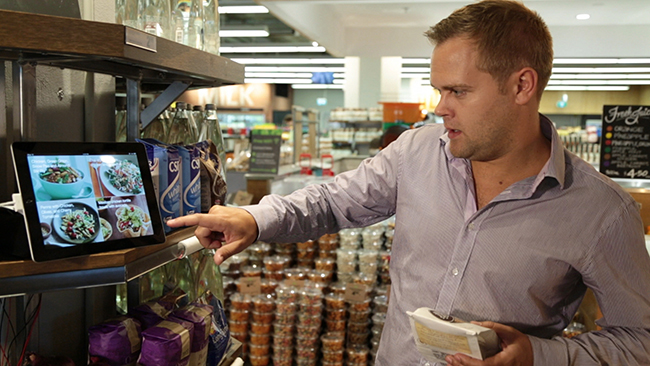
Delivery 2.0: Blurring the Lines Between Retail & Delivery
Retail has already been transfigured as an industry. Since the early 2000s with the growth in online and e-commerce, to the current state-of-play with both online and offline now merging towards a seamless omni-channel experience, it’s a new age of consumerism.
But what’s next? Now, I’m no Doug Stephens, aka the Retail Prophet, but I have been noticing a trend worth sharing through my work with clients and our global thought leaders in our retail practice. The new phenomenon that I predict will further shape this disrupted sector is Delivery 2.0, whereby delivery becomes retail. Where product is not the differentiator, retailers have been searching for the value they can add for the customer within the customer experience.

Some have chosen “fidelity” and are doing incredibly well. Burberry Group, for example, posted an increase of sales in the region of 17% through their digital activities, making their stores a mind-blowing seamless and immersive extravaganza. Many have been pushing in the direction of “convenience” whether that be a faster, discounted experience in-store or a much more convenient collection or delivery service.
We saw, for example, UK-based Appliances Online switch from a B2B model (supporting some of the biggest online retailers with their electrical appliances offer) to a B2C model. I then watched with particular incredulity as AO.COM became one of the biggest flotations in UK Retail.
John Roberts, CEO of AO.com, said, "I need to be able to explain to my Grandmother what I do and she needs to be able to order a washing machine for next delivery and installation without even noticing the technology part.”
£1bn capitalisation and a stock market flotation later, AO.com has become a dominant force in a commodity driven sector with beautiful simplicity and attention to detail on convenience.
Delivery 2.0
So back to Delivery 2.0. When every retailer is able to offer same day, even next hour delivery, collection from a locker at a commuter train station (e.g. Amazon's deal with Transport for London - TfL) or specified next day delivery slots in 15-minute-periods what would differentiate one from another?
We are working, for example, with SF Express, the largest logistics company in China. They pride themselves on delivering packages within a day. The focus has been on improving the customer experience through digital (platform and touch points) so that a customer can self serve online, or call a call centre and be served face-to-face in a totally seamless way. SF Express is using this approach to change the game and reverse their business model from delivery service to retailer. They are acquiring physical presence in the form of 'Post Offices' which are a both a delivery hub and a local convenience store. But they are not operating on a basis where the store has to be stocked full of goods. Instead they have a core range of goods supplemented by an endless aisle concept.
SF Express, for example, has the ability to sell thousands of products through digital kiosks, and customers can scan an image of a product in the store (a la Tesco South Korea) and then having it delivered next day, to the Post Office or to home. Now their delivery network is so sophisticated and comprehensive all they need to add are 'convenience services' (or products) to their assortment. SF Express recently launched a flower delivery service. It’s already now the largest Florist in China! So what’s next? Laundry, grocery, or…?
Amazon is already taking its next step in this direction by deploying its own network of trucks and vans; keep your eye out for those! This is another aggressive tactic from Amazon to ensure they are not just feeding the delivery 2.0 network. Instead they have come in for a piece of the action. Retailers are busy looking at other retailers as their competition, but that is not wide enough. In this new age of consumerism, looking over your shoulder probably means you are already dead, and being a 'fast follower' might not even be good enough.
It's likely you cannot even see where the next competitive force is coming from, so the key is to ensure you are focused on the future and staying ahead, not just staying alive. Retail is an industry about to transfigured all over again. We are in a state (and need) of continuous innovation. Fasten your seat belts...it's here to stay.
Disclaimer: The statements and opinions expressed in this article are those of the author(s) and do not necessarily reflect the positions of Thoughtworks.














